PeopleTo The Fullest
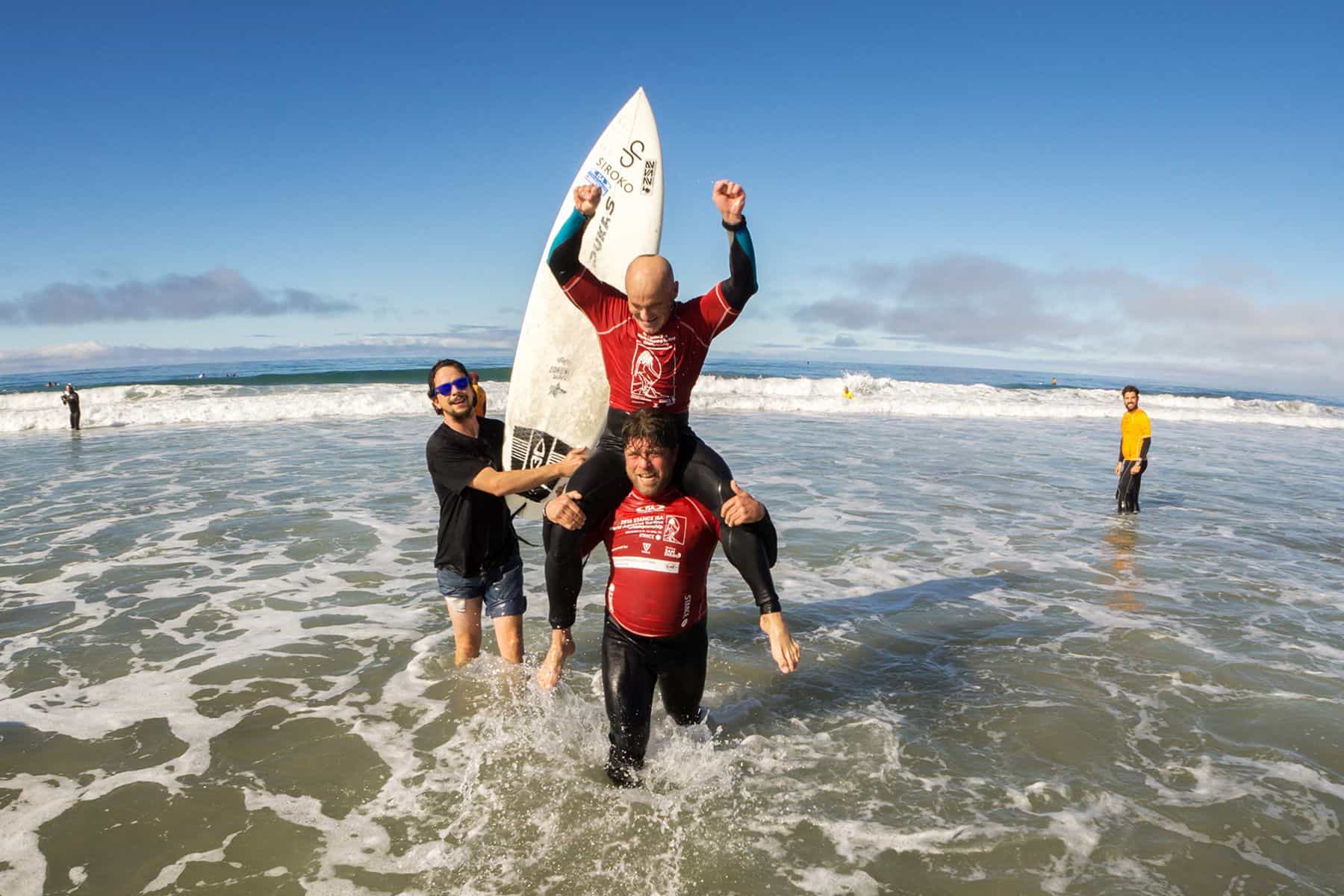
The Aitor “Gallo” Francesena Profile
“When I still could see, I would get out of the water frustrated for not having done what the wave asked of me,” says Aitor Francesena, a 52-year-old surfer and surf coach from Zarautz, Basque Country, Spain. “Now that I’m blind, there’s a synchrony between what I do and the wave, and I’m overcome with an incredible feeling. To tell the truth, nowadays I almost enjoy surfing more because the sensations are even greater.”
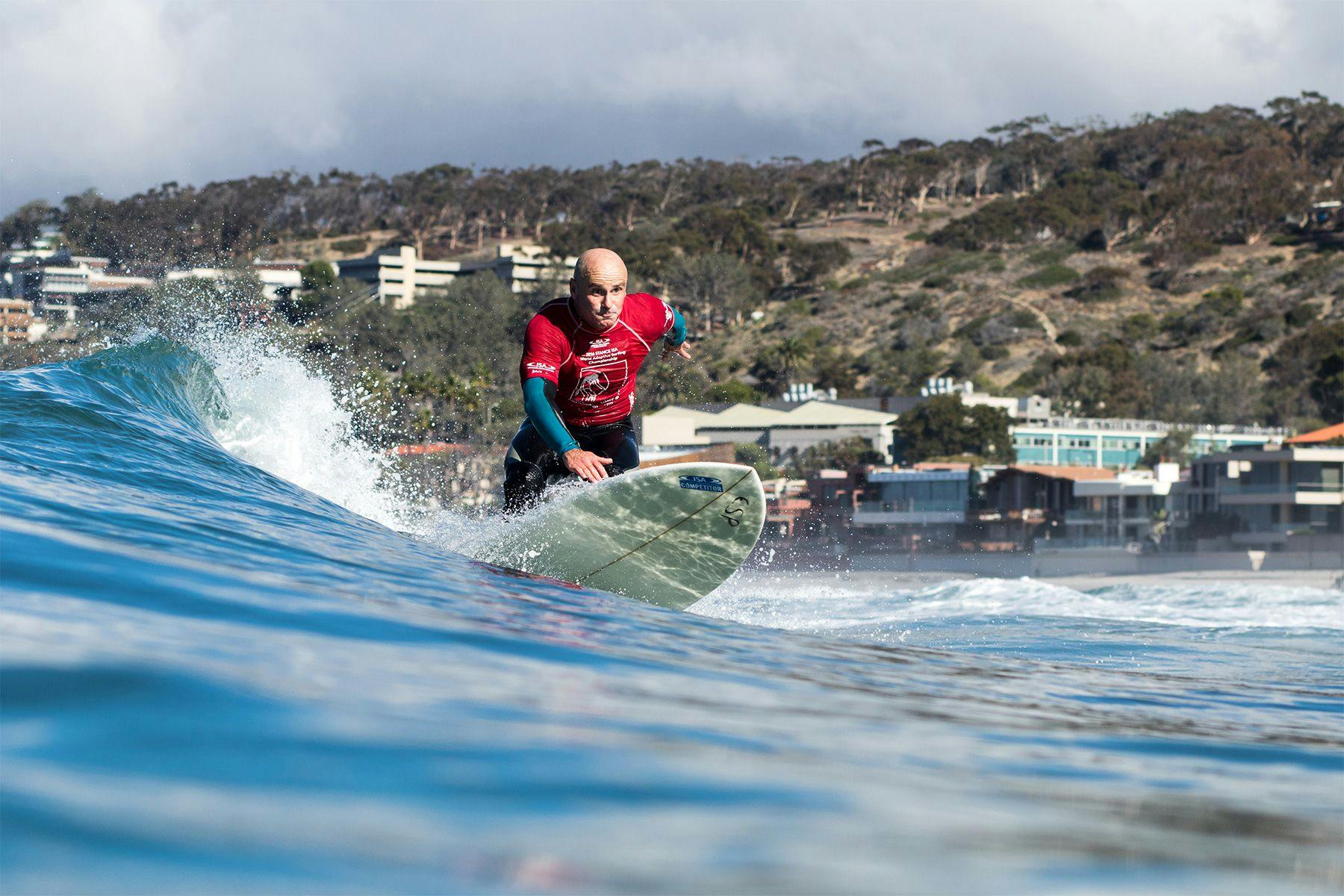
“Gallo”, as he is known by his friends, was born with congenital glaucoma – a rare genetic disorder where high fluid pressure in the eyes damages the optic nerve. At 14, when his surfing journey began, an unsuccessful operation left him blind in his right eye. He carried on surfing nonetheless. But in 2012, following a bad wipeout, he lost sight in the left eye, too. What for many would have meant no more paddling out, for Aitor represented the beginning of a new relationship with surfing. Three months later, he was back in the brine.
“After leaving the hospital, I thought I’d never surf again. But when I got in the water for the first time, I put on some swimming goggles and, wading in, I realised that the sea provided me with a lot of information.”
Aitor began in small waves with long, soft-top surfboards. He had to learn to surf all over again, to attune his senses and assimilate the wave’s speed, shape, and power. With time, he developed a high level of sensitivity to the environment. “If the wave came straight at me I was facing the North; if I turned and it hit my hips I knew I was facing East or West; if it hit me from behind I was facing South,” he explains. “Meanwhile, the sound told me if the wave was powerful or weak, whether it was close or far away.”
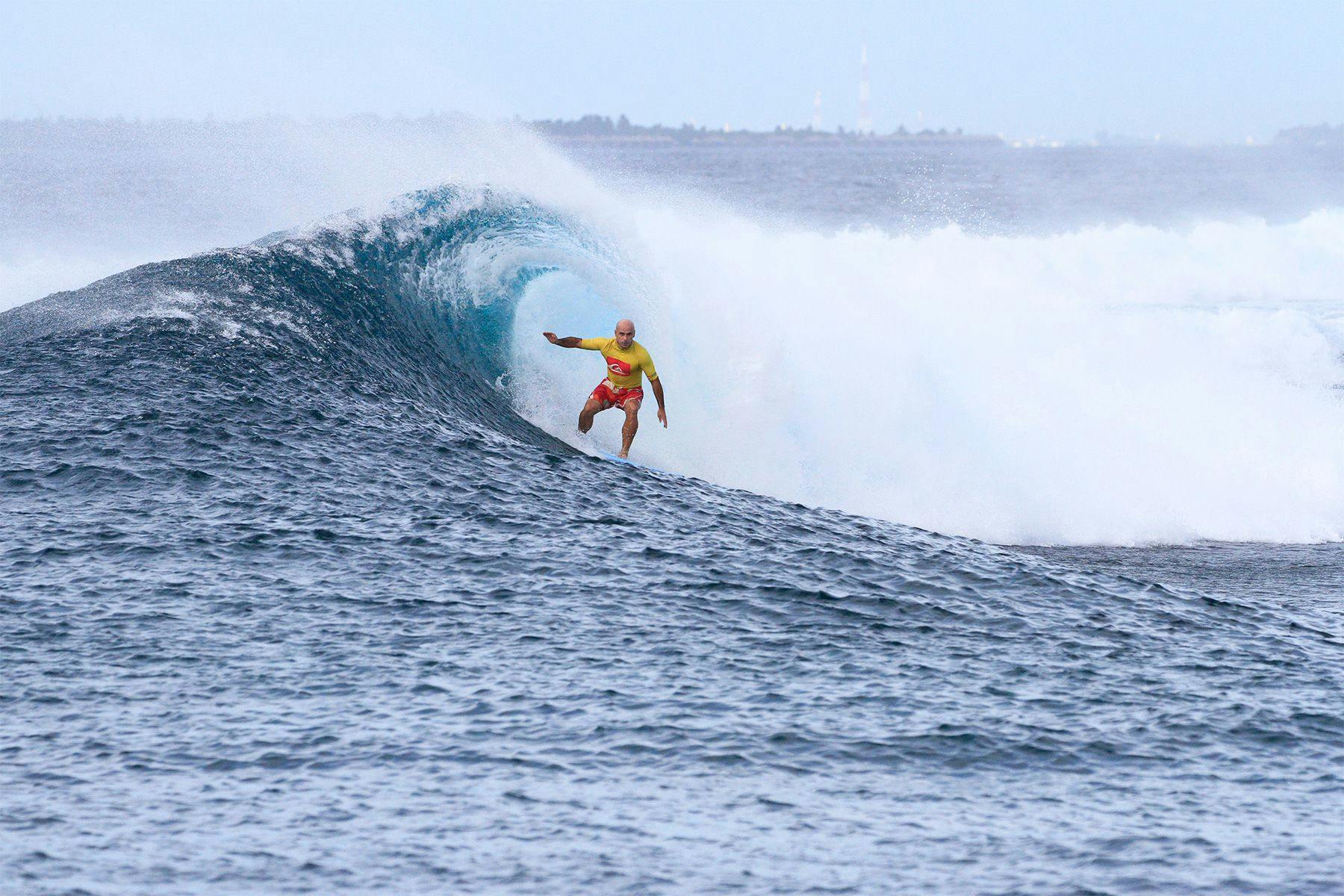
Besides tapping into sensory input, Aitor often calls on his friends to convey the conditions of the sea and guide him to the line-up and through the take-off; after that, he rides the wave unassisted. “The biggest limitation for a blind surfer is not being able to surf alone for fear of getting lost at sea due to the currents or winds, or because the waves move you from place to place too quickly,” says Aitor. “So when I’m fortunate to have someone to help me, things are easier and more straightforward.”
Still, Aitor doesn’t always surf with a guide, because for him, being self-sufficient in the sea is important. It can be a demanding task, surfing without sight or support. But there’s an upshot: “My hearing is what helps me the most when I want to surf alone,” says Aitor. “And it improves a lot from the moment you surf without any help or guidance, since the only thing you have is what you hear.”
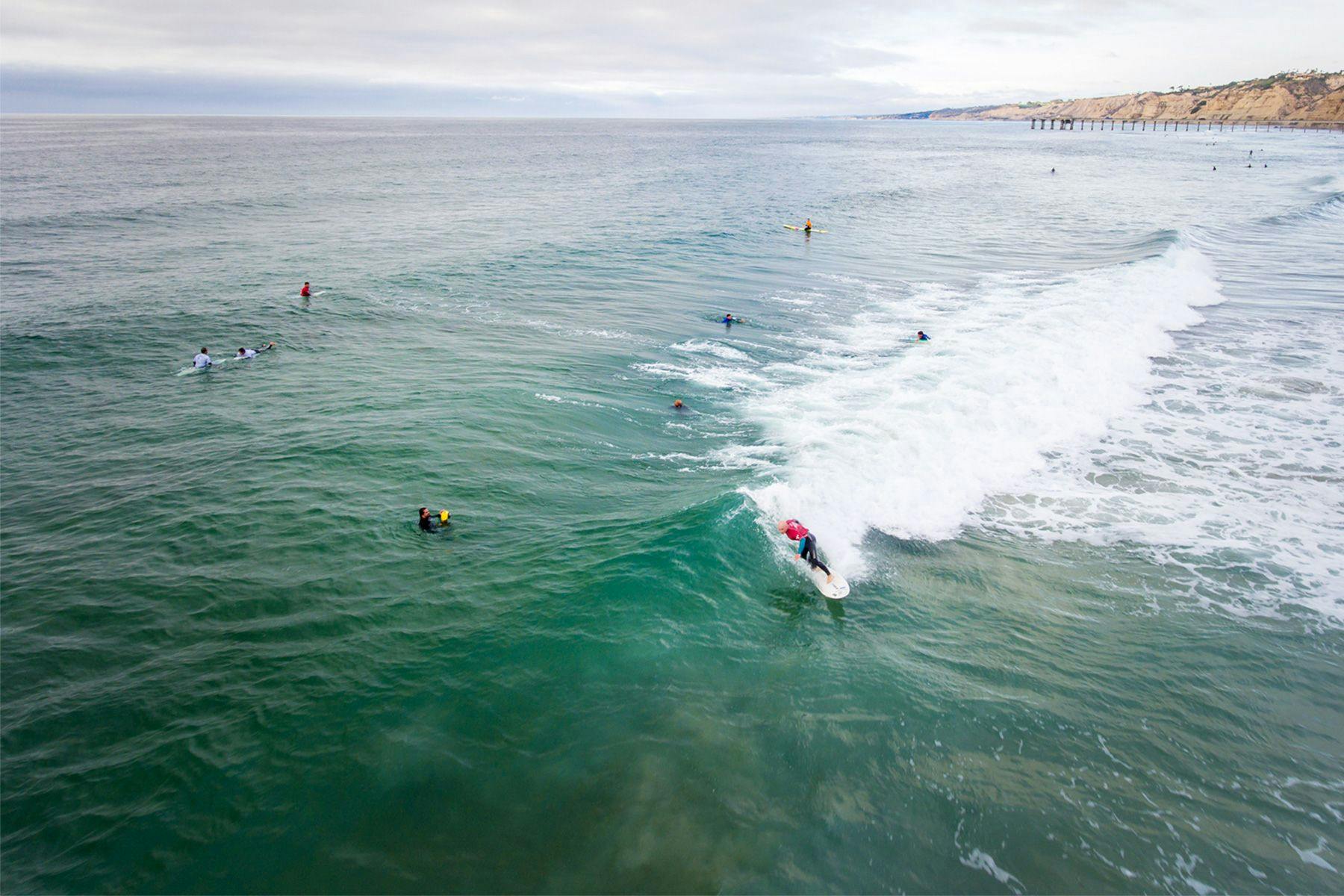
Whether accompanied or not, one thing Aitor has to rely on is his wave riding skills. And like all surfers striving to improve, he hones his technique through the repetition of movements – both in and out of the water. “I often go skating in large, hazardless spaces,” says Aitor. “But always supervised by someone who knows how to surf because otherwise, you can develop bad vices when executing the manoeuvres.”
Indeed, technique is something Aitor is well-versed in; it is something that has underpinned his entire surfing career. A pioneering surf coach in Spain, he started the Zarautz Surf Club in 1988, co-founded the country’s first surf school, and eventually took the role of national coach for the Spanish Surfing Federation, working with the likes of Mario Azurza and Kepa Acero, and playing a fundamental role in Aritz Aranburu’s journey to the Top 45.
Despite his background, after he lost his sight, many people stopped believing Aitor could coach. Yet he soldiered on, now using the eyes of the surfers he trains when working with video recordings. “It is very difficult to believe that a blind person can contribute to this sport,” says Aitor. “But since I love coaching and surfing so much, I’ve been able to show that by investing more time and effort than many coaches out there, I can also work at a high level.”
Aitor’s ability to work at the top level of the sport has a lot to do with his experience as a competitor – something he remains passionate, pedagogical, and painstaking about. “I have always enjoyed competing, and now I face each championship as I always have: I focus on having top-notch equipment, technique, tactics, physical preparation and nutrition,” says Aitor. “For me, the best surfer is the one who surfs in all kinds of waves, with all sorts of equipment, in all conditions and situations. I have always sought that for myself and my students.”
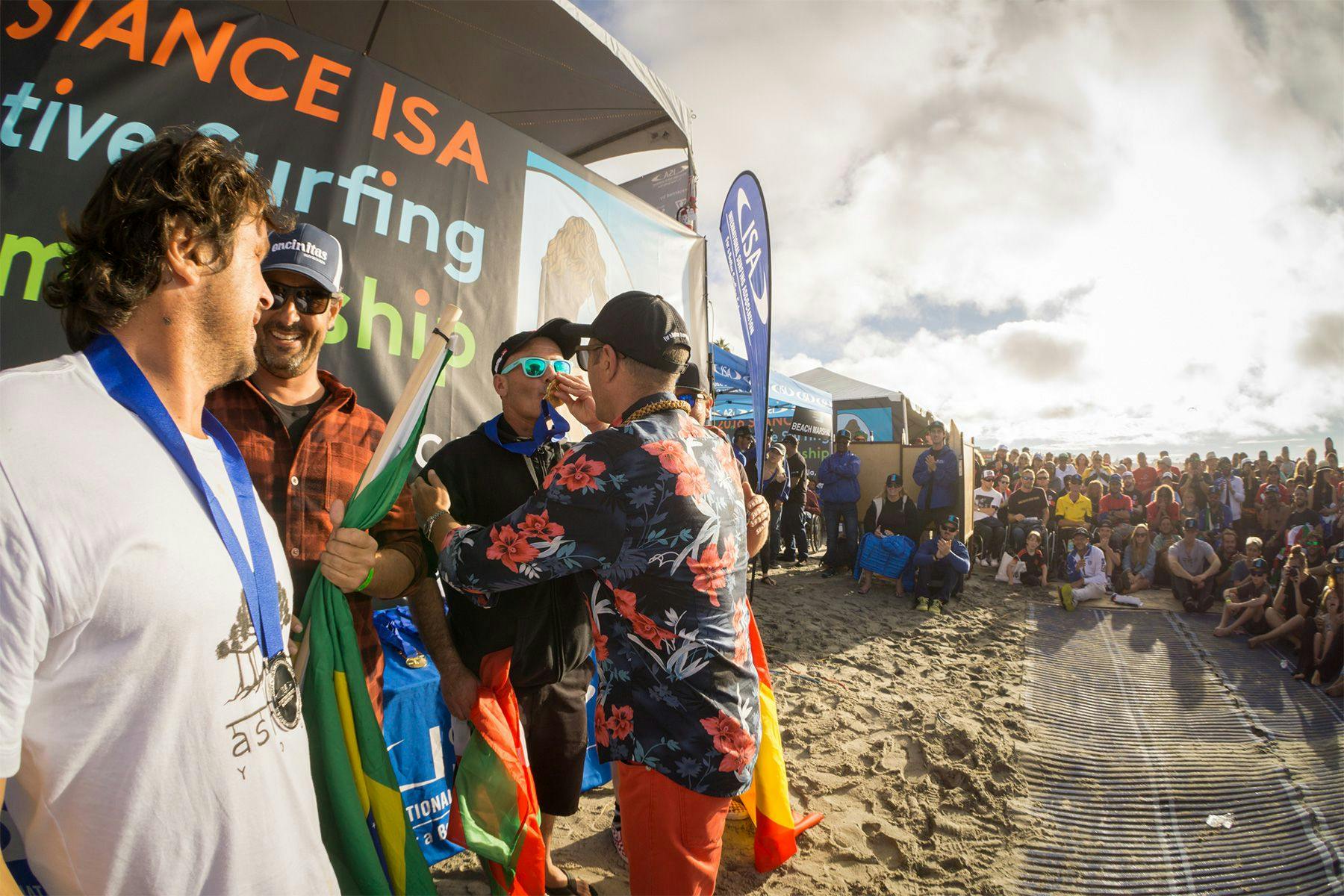
With nearly a decade in the professional adaptive surfing world, four national titles, and two ISA Para Surfing World Championships under his belt [editor’s note: since this interview, Aitor also won the men’s blind catogory of the US Open Adaptive Surfing Championships, in turn making him the champion of the adaptive surfing world circuit], Aitor has something to say about the state and role of organisations. “We’re still at the early stages; everything is still very immature, there are many things to work on,” argues Aitor. “In Spain, they don’t take us seriously; we seem to be the ‘filler’ in contests. This must change, after all, we are athletes like everyone else.”
“I would like people with any type of disability to try this sport, because the more people practising it, the stronger the categories in competitions, and the better our chances to make it to the Paralympics,” he adds. As for his personal objectives, Aitor is resolute. “What I want the most is to keep improving, surf faster and do more vertical and powerful manoeuvres, and of course, win more contests.”
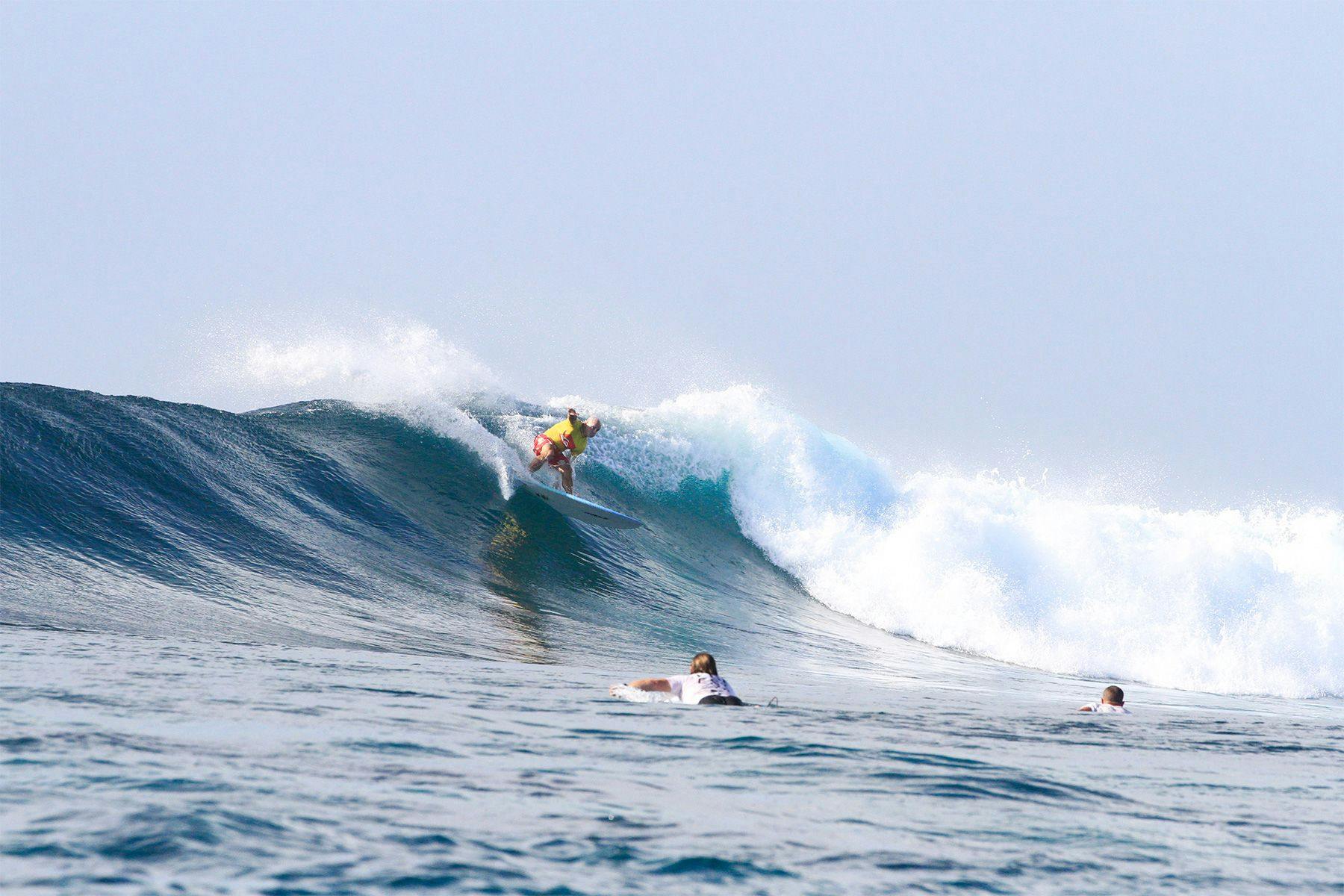
According to Aitor, part of his resolve and enthusiasm comes from living by three mottos: “Where there’s a will there’s a way”, “Forward”, and “¡A tope!”, which more or less translates to “To the fullest!”. But the better part, he asserts, is acknowledging there is no secret. It is what it is; it’s get-up-and-go.
“If there was a secret, mine would be having been born in a farmhouse in the Basque countryside among farmers who only knew work,” he says. “From this, I learned that life is hard for everyone, so there is nothing left to do but fight for what you want. I think that what stops people from pursuing what they love is not willing to sacrifice themselves to get what they want.”
**********
The author and Surf Simply would like to thank Tim Leadsford of C-Skins Wetsuits (Aitor’s wetsuit sponsor) for his assistance with the article, and photographers Marco Mora, Sean Evans and Chris Grant for providing imagery.